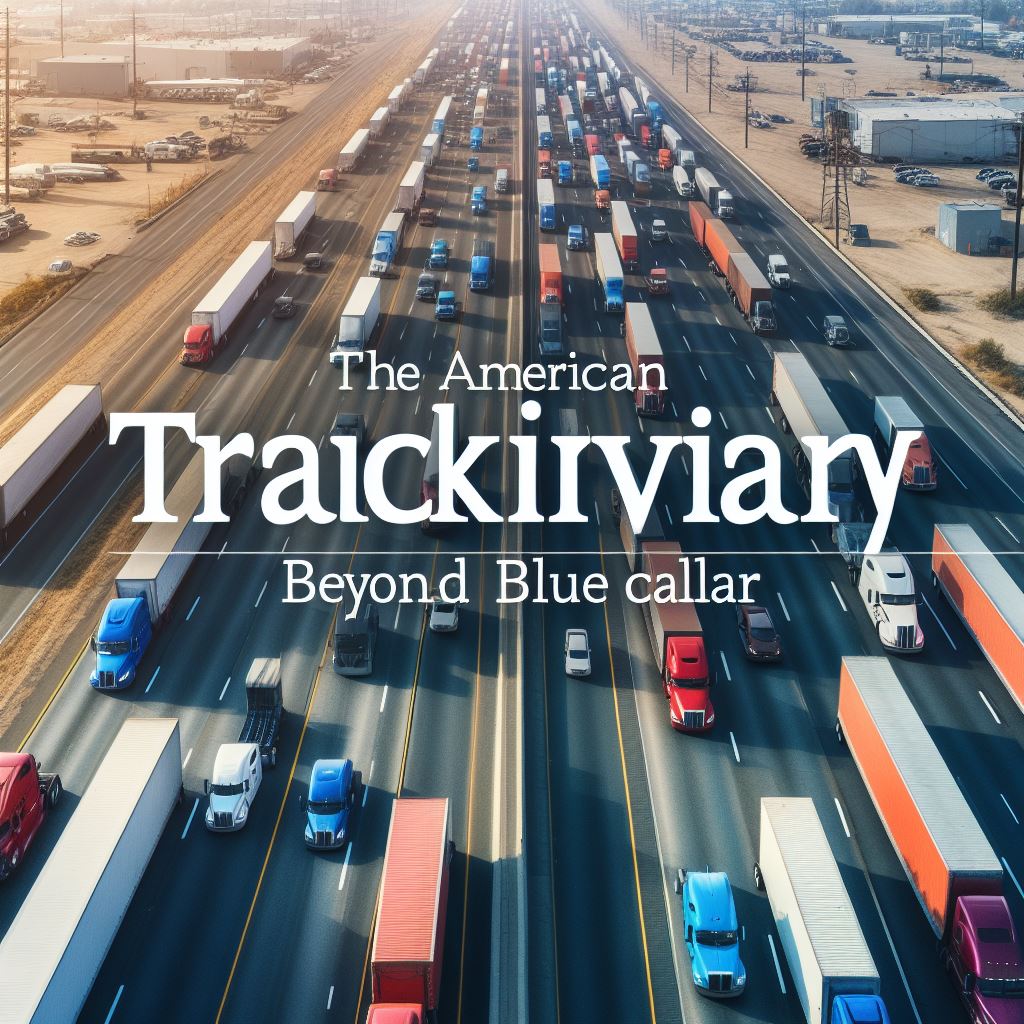Are Truckers Blue Collar?
The image of a trucker: hands calloused from gripping the wheel, face weathered by endless miles under the sun, a trusty CB radio crackling with the rhythm of the open road. It’s an iconic part of American landscape, often linked to the “blue-collar” identity. But in today’s increasingly complex world, does this label still fit?

In the realm of labor classifications, the term “blue collar” has often been associated with manual laborers in industrial or technical fields. One profession frequently debated in this context is truck driving. Despite the widespread perception, the classification of truckers as blue collar workers is not as straightforward as it may seem.
The Traditional Blue Collar
Historically, “blue collar” referred to jobs requiring manual labor and technical skills, often in manufacturing or construction. The work was physically demanding, demanding dedication and resilience. Truckers, hauling vital goods across vast distances, undeniably fit this mold. They spent long hours navigating challenging roads, enduring the elements, and relying on practical expertise to keep their rigs rolling.
The Blurring Lines
However, the modern economy has blurred the lines between “blue collar” and “white collar.” Technology has permeated almost every field, including trucking. Drivers now navigate with GPS, log information electronically, and even connect with dispatch through complex software. Their skills encompass elements of both physical and mental agility. Truckers play a pivotal role in the intricate web of logistics that underpins modern supply chains. They are responsible for planning efficient routes, coordinating deliveries, and optimizing schedules to ensure timely and cost-effective transportation of goods.
Furthermore, the trucking industry offers opportunities for career advancement and specialization. Long-haul drivers can transition into management roles, become trainers, or even own their own rigs. Some specialize in hauling hazardous materials, navigating tight urban spaces, or transporting sensitive medical supplies. This complexity and diversity are challenging traditional classifications.
Beyond the Label
So, are truckers truly blue collar? Perhaps the answer lies not in simplistic labels, but in recognizing the unique nature of their work. They are independent pioneers, navigating both concrete highways and the ever-changing logistics landscape. Skilled technicians, adept at operating and maintaining complex machinery. They are entrepreneurs, often managing their own schedules and finances.
Contrary to the traditional image of blue-collar workers, truckers undergo extensive training and certification processes to obtain their commercial driver’s licenses (CDLs). They must demonstrate proficiency in operating large commercial vehicles, understanding traffic laws, and maintaining safety standards. Additionally, many truckers undergo specialized training in areas such as hazardous materials handling, refrigerated transport, and specialized cargo handling.
The Essential Tapestry of a Trucker’s Life
Instead of pigeonholing truckers into a singular category, let’s celebrate their multifaceted identity. They are the backbone of commerce, the lifeblood of our daily lives, and the embodiment of American grit and determination. They deserve recognition for their diverse skills, the challenges they face, and the vital role they play in keeping the wheels of society turning.
Adhering to Safety Regulations
Safety is paramount in the trucking industry, and truckers are subject to stringent regulations governing vehicle maintenance, driver hours, and safety protocols. Truckers must undergo regular inspections, adhere to strict rest periods, and comply with federal and state safety regulations to ensure the safe operation of their vehicles. Their commitment to safety underscores the professionalism and dedication inherent in their work.
Ultimately, whether truckers are “blue collar” or not is less important than acknowledging their value and respecting the unique tapestry of skills and experiences they bring to the table. They are essential contributors to our modern world, deserving of appreciation for their resilience, independence, and dedication to keeping the goods flowing.
They are skilled professionals who navigate complex logistics, adhere to strict safety regulations, and play a vital role in the efficient functioning of modern supply chains. Debunking the myth of truckers as solely blue collar highlights the diverse skill set and invaluable contributions of these essential workers to the economy.
